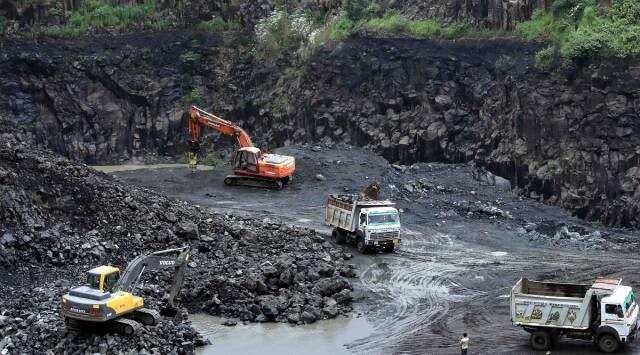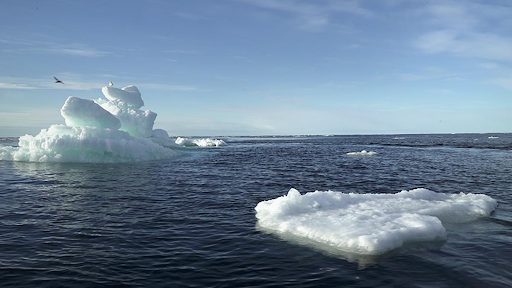Description

Disclaimer: Copyright infringement not intended.
Context
- The International Finance Corporation (IFC) – the World Bank’s private sector arm – has issued an update to its Green Equity Approach (GEA) policy saying that it will no longer allow financial intermediary clients to support new coal projects.
About Green Equity Approach
- One of the key goals of the Paris Agreement is to ensure that financial flows are consistent with a pathway toward low emissions and climate resilient development.
- In 2020, IFC launched the Green Equity Approach (GEA) to help financial institution (FI) clients continue to do business in a changing world.
- Under the approach, IFC has worked with FI clients where they have equity or equity-like exposures to increase their climate lending and reduce their exposure to coal-related projects in line with the Paris Agreement goals.
- Now, IFC will start requiring a commitment from FI clients to not originate and finance any new coal projects.
- Previously, the GEA only required clients to reduce their exposure by half by 2025, and to zero by 2030, but did not prevent new investments.
Need
- Climate policy experts say that the previous GEA policy had “disastrous consequences” by allowing IFC clients to continue supporting new coal.
- India currently has a huge portfolio of financial Intermediary investments. There are 88 active financial intermediary investments close to the tune of US$ 5 billion. These financial intermediary investments include support for financial institutions which have footprints in energy, energy utilities and renewable energy investments.
- While the IFC’s new commitment has been broadly welcomed, campaigners have highlighted the need for the IFC to go further by excluding all coal, oil and gas investments in its plan to align its portfolio with the Paris Agreement.

What Is the International Finance Corporation (IFC)?
- A member of the World Bank Group, the International Finance Corporation (IFC) provides financing for private enterprise investments in developing countries.
- The International Finance Corporation (IFC) provides financing of private-enterprise investment in developing countries around the world, through both loans and direct investments.
- Affiliated with the World Bank, it also provides advisory services to encourage the development of private enterprise in nations that might be lacking the necessary infrastructure or liquidity for businesses to secure financing.
Working
- The IFC was established in 1956 as a member of the World Bank Group, focused on investing in economic development.
- It claims to be the largest global development institution focused on the private sector in developing countries.
- The IFC says it also seeks to ensure that private enterprises in developing nations have access to markets and financing.
- The IFC is governed by its 184 member countries and is headquartered in Washington, D.C.
- To raise money, the IFC issues bonds in markets around the world.
Criticism of the IFC
- It says one of its primary goals is to reduce poverty through economic development, but critics say it has begun to act more like a private investment bank with a focus on corporate profit, sometimes with disregard for the environmental and social impacts of its projects.

What Is the World Bank?
- The World Bank founded under the Bretton Woods Agreement seeks to serve international governments.
- The World Bank was created in 1944 out of the Bretton Woods Agreement, which was secured under the auspices of the United Nations in the latter days of World War II. The Bretton Woods Agreement included several components: a collective international monetary system, the formation of the World Bank, and the creation of the International Monetary Fund (IMF).
- The World Bank has expanded to become known as the World Bank Group with five cooperative organizations, sometimes known as the World Banks.
- The World Bank is an international organization dedicated to providing financing, advice, and research to developing nations to aid their economic advancement.
- The bank predominantly acts as an organization that attempts to fight poverty by offering developmental assistance to middle- and low-income countries.
- As of 2022, the World Bank identified 17 goals that it aims to achieve by 2030. The top two are stated in their mission statement.
- The first is to end extreme poverty by decreasing the number of people living on less than $1.90 a day to below 3% of the world population.
- The second is to increase overall prosperity by increasing income growth in the bottom 40% of every country in the world.
The group
- Within the organization operates different sectors: the International Bank of Reconstruction and Development (IBRD), the International Development Association (IDA), the International Finance Corporation (IFC), and the Multilateral Investment Guarantee Agency (MIGA).
- The IBRD, the original World Bank, loans money to creditworthy low-income or middle-income countries.
- The IDA issues credits, or interest-free loans, to the poorest nations.
- IFC provides funds and guidance to the private sector for the purpose of helping developing nations stay on a growth trajectory.
- Lastly, MIGA insures investments to the poorest countries to help reduce poverty and improve the welfare of a nation's citizens.
Must Read Articles:
World Bank: https://www.iasgyan.in/daily-current-affairs/world-bank-42
|
PRACTICE QUESTION
Q) International Finance Corporation has begun to act more like a private investment bank with a focus on corporate profit, sometimes with disregard for the environmental and social impacts of its projects. Analyse. (250 words)
|

https://indianexpress.com/article/india/ifc-financial-intermediary-clients-to-support-new-coal-projects-8541855/














